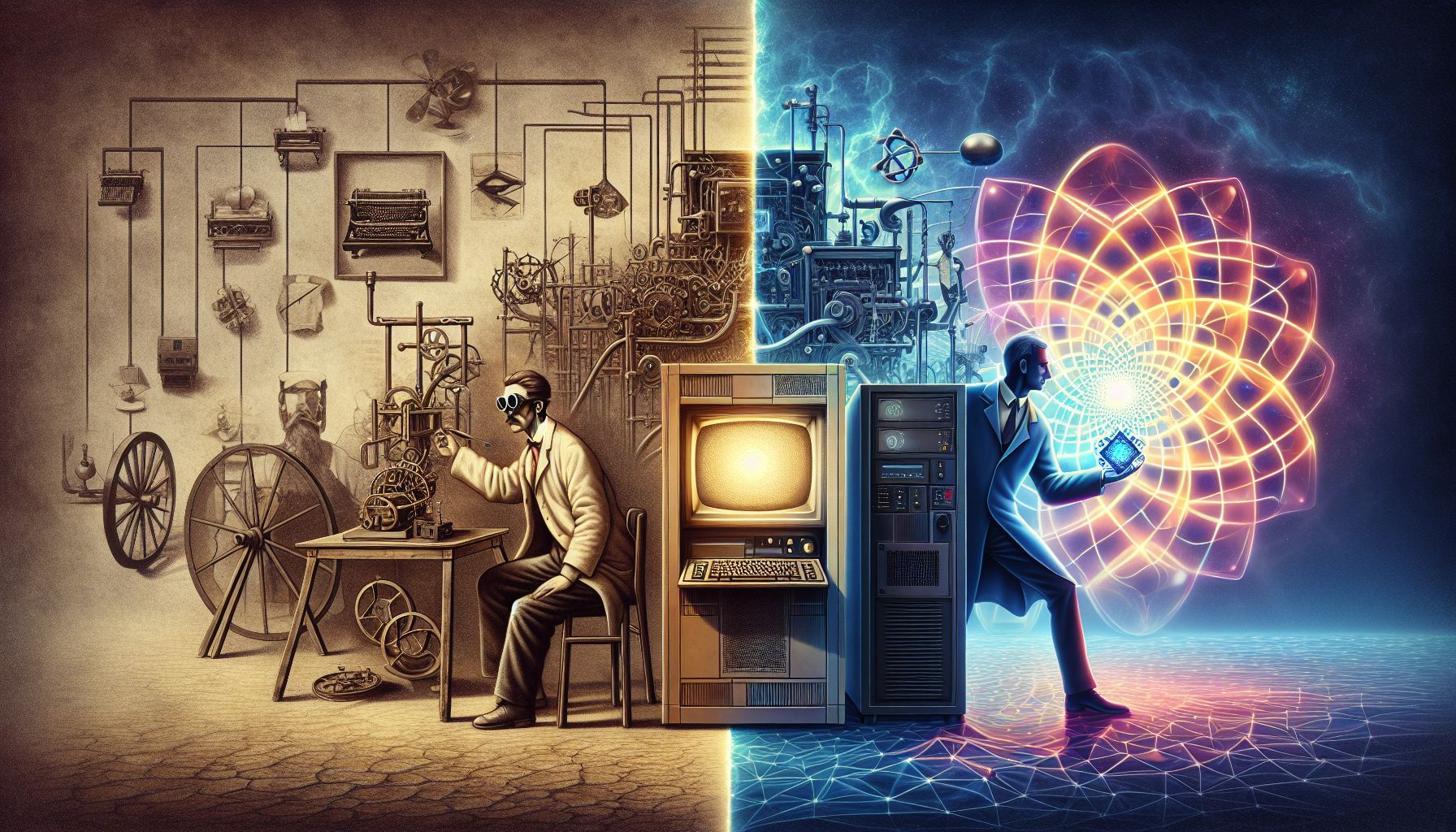📌 Let’s explore the topic in depth and see what insights we can uncover.
⚡ “Imagine a computer solving a problem that would take our fastest supercomputer millions of years, in just under 3 minutes - welcome to the dizzying realities of quantum computing.”
In the realm of technology, where innovations are born at the speed of light, one concept has been steadily gaining traction and piquing the interest of tech enthusiasts, scientists, and businesses alike – Quantum Computing. It’s not just another buzzword in the tech universe; it’s a revolutionary phenomenon set to redefine the way we perceive and utilize computing power. Imagine being able to perform calculations at speeds that would make even the most powerful supercomputers of today appear as primitive as an abacus. Or being able to simulate complex systems in ways that were previously considered impossible. Welcome to the era of quantum computing. 🚀
🎭 The Quantum Stage: A Brief Overview

"Quantum Computing: Unleashing the Unfathomable Future"
Before we sail on the quantum sea, let’s take a moment to understand its complex and intriguing landscape. The world of quantum computing is largely based on the principles of quantum mechanics, a branch of physics that deals with phenomena on a very small scale, such as molecules, atoms, and subatomic particles. The fundamental unit of quantum computing is the qubit or quantum bit. Unlike classical bits, which can be either 0 or 1, a qubit can be in a state of 0, 1, or both at the same time, thanks to a quantum property known as superposition. Additionally, qubits can be entangled via another quantum phenomenon known as entanglement. This means the state of one qubit can directly influence the state of another, no matter how far apart they are.
💻 Quantum Computing vs. Classical Computing
Now that we’ve dipped our toes into the quantum realm, let’s see how it stacks up against classical computing:
Computation Speed
Quantum computers can solve certain types of problems much faster than classical computers. 🔍 Interestingly, due to quantum superposition, which allows a quantum computer to process a vast number of possibilities simultaneously.
Data Storage
Quantum computers can store much larger amounts of information compared to classical computers. 🔍 Interestingly, thanks to quantum bits, which can hold more information than classical bits.
Complex Simulations
Quantum computers have the potential to simulate complex systems, like chemical reactions or weather patterns, with a degree of precision far beyond the reach of even the most powerful classical computers.
Security
Quantum computing offers the potential for creating uncrackable encryption systems. 🔍 Interestingly, due to quantum entanglement, where tampering with one part of a system would immediately affect the other, making any intrusion attempts easily detectable.
🌐 The Potential Applications of Quantum Computing
Quantum computing is not just about speed or data storage; it’s about unlocking possibilities that were previously unimaginable. Here’s a glimpse of what the future might hold:
Drug Discovery
Quantum computers could simulate the molecular structure of drugs, leading to new breakthroughs in medicine. They could also speed up the process of drug discovery, saving time and lives.
Climate Modeling
Quantum computers could help us understand and predict complex weather patterns and climate changes, helping us prepare for or even prevent disasters.
Financial Modeling
In the financial sector, quantum computers could optimize trading strategies, manage risk, and price financial instruments in ways that are currently impossible.
Artificial Intelligence
Quantum computers could significantly speed up machine learning processes, leading to faster and more sophisticated AI systems.
Cryptography
Quantum computers could potentially break many of the encryption algorithms currently in use, leading to a new era of quantum cryptography.
🚧 The Challenges Ahead
While the potential of quantum computing is enormous, it’s not without its hurdles. Here are a few challenges that need to be overcome:
Physical Challenges
Building a stable quantum computer is extremely difficult. 🧩 As for Qubits, they’re susceptible to decoherence, where they lose their quantum state due to disturbances in their environment.
Programming Challenges
Quantum computing requires a whole new approach to programming. Traditional programming languages and algorithms are not suitable for quantum computers.
Security Concerns
While quantum computers could create uncrackable encryption, they could also break many of the encryption systems we currently use, leading to potential security threats.
🧭 Conclusion
The voyage into the quantum realm is filled with both incredible promise and formidable challenges. As we stand on the precipice of this new era, the journey may seem daunting, but remember – every great discovery was once an uncharted territory. Quantum computing is not just a technological revolution; it’s a testament to human curiosity, ingenuity, and the relentless pursuit of knowledge. So, buckle up, and prepare for a future where reality is stranger than fiction, and where the impossible becomes possible. Welcome to the era of quantum computing. 🚀
⚙️ Join us again as we explore the ever-evolving tech landscape.
